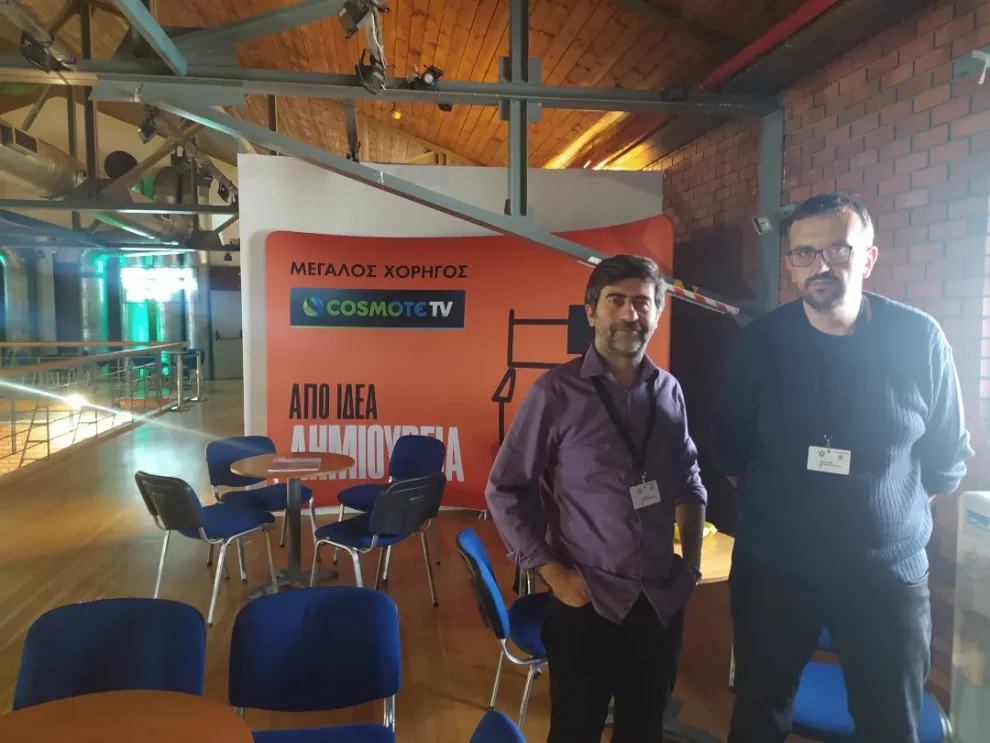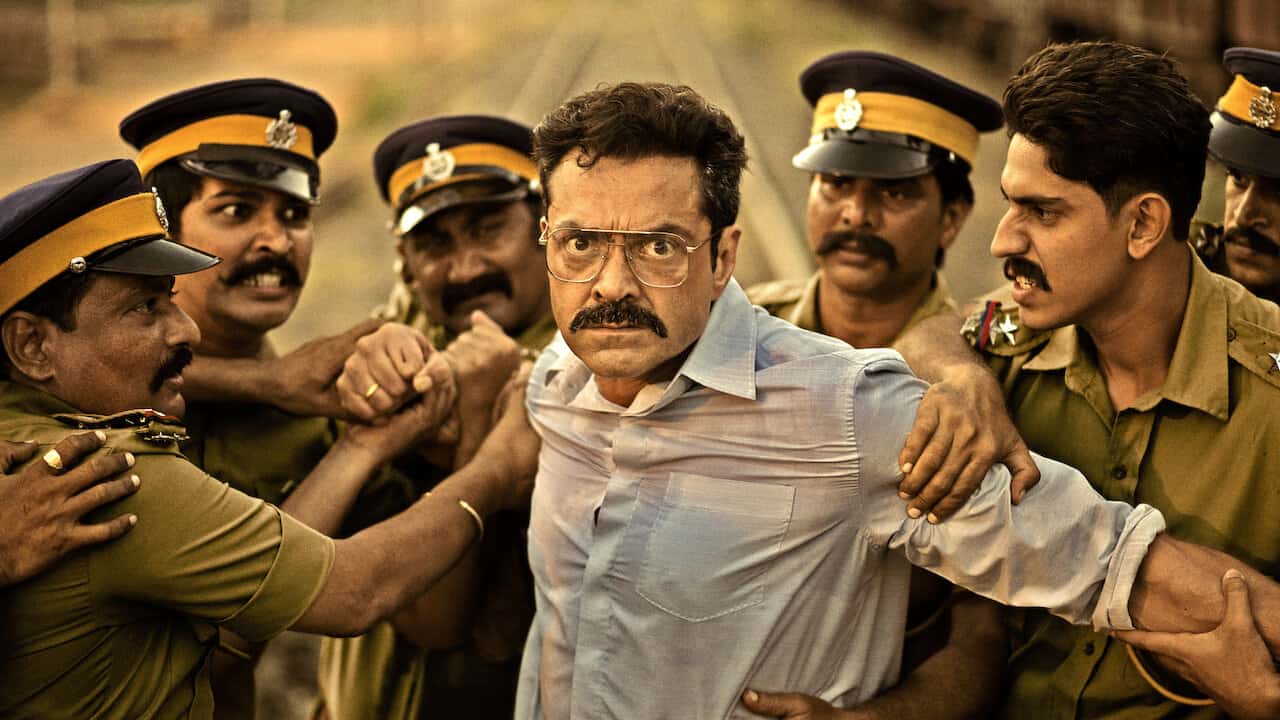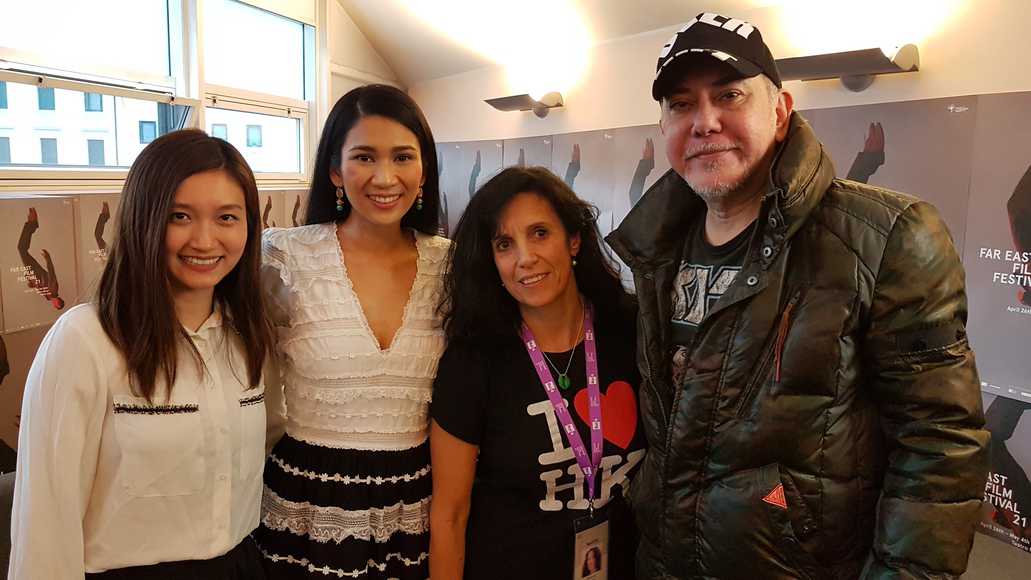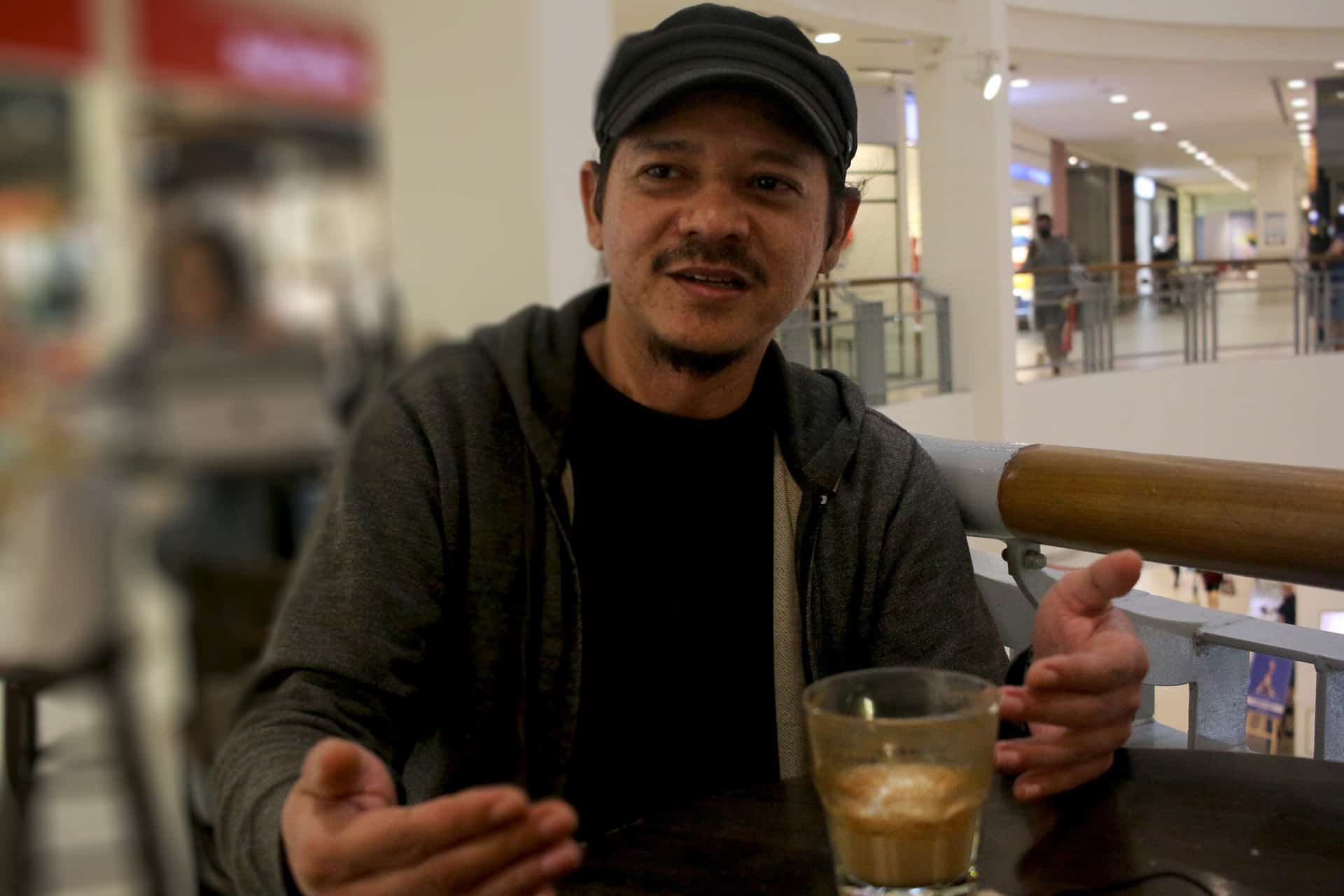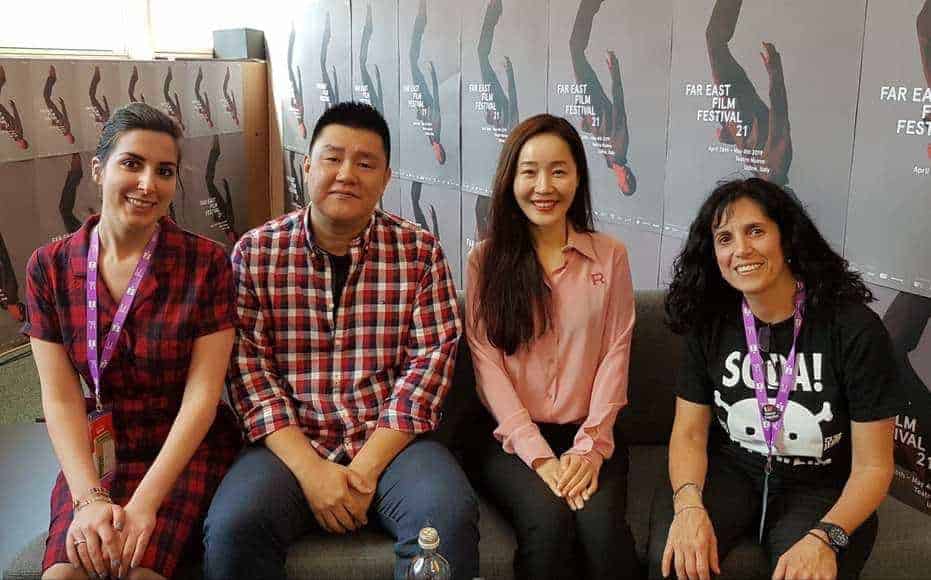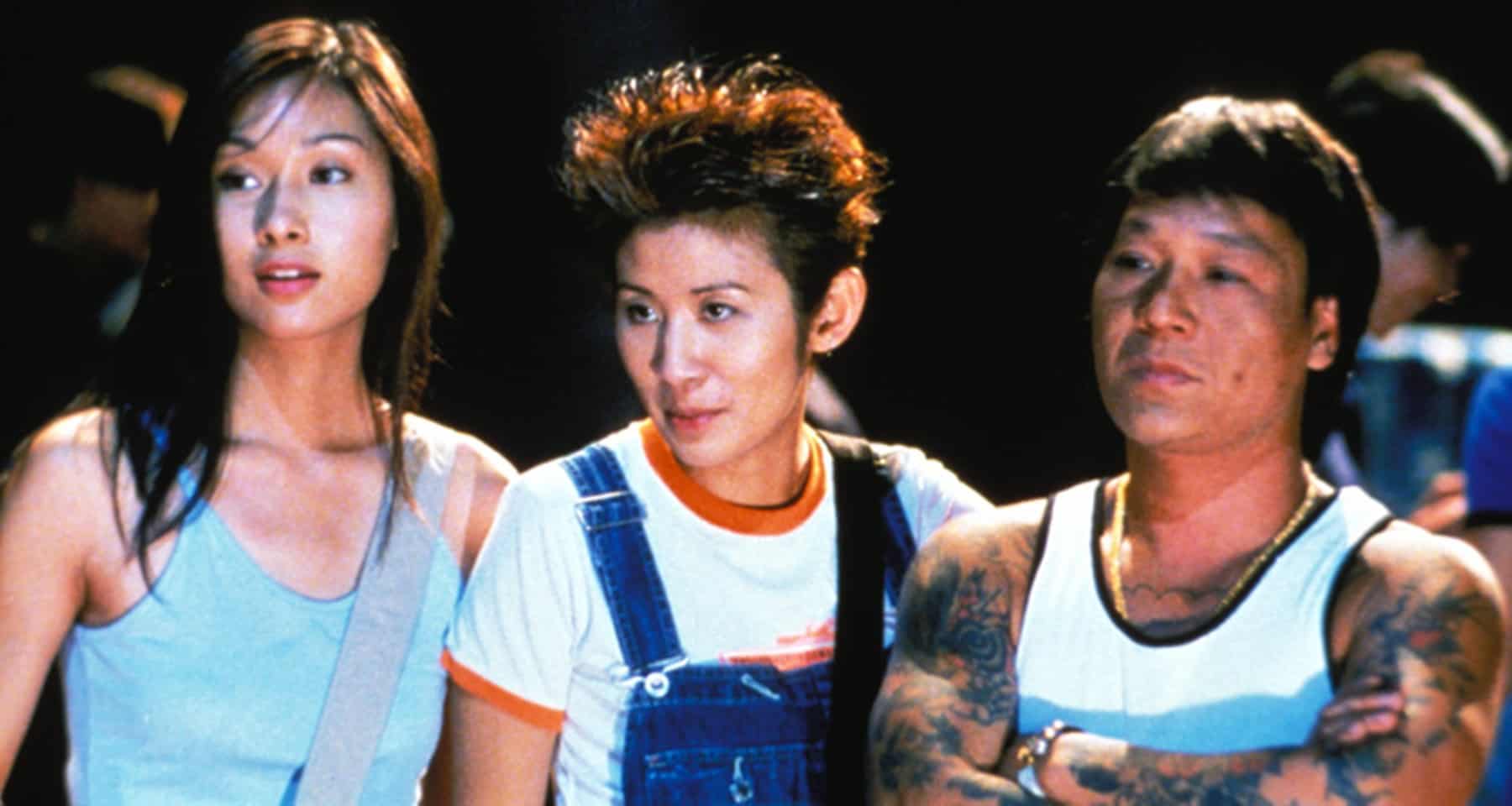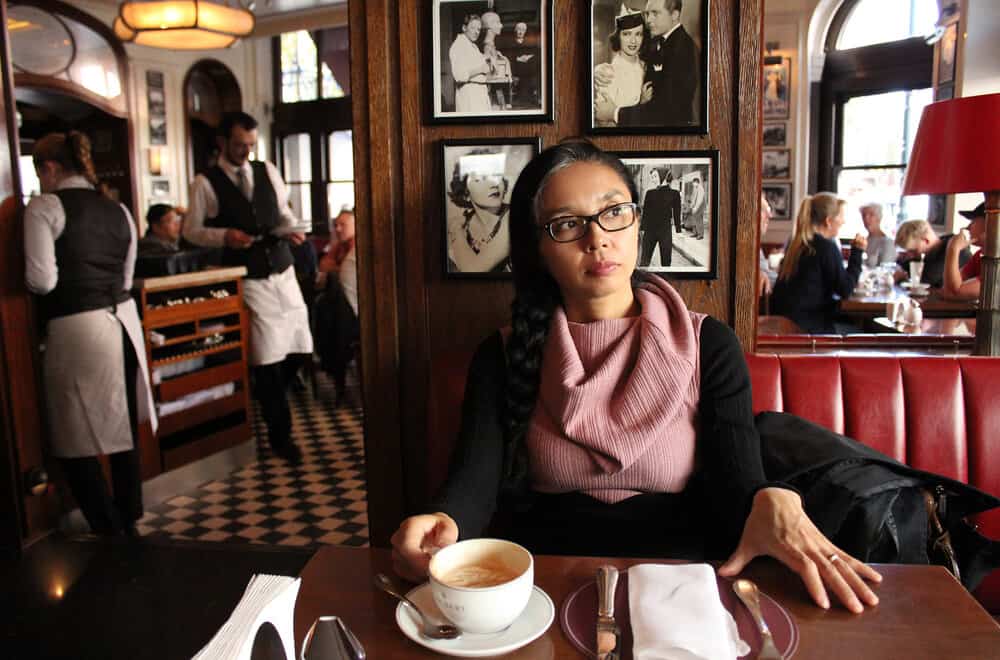Emin Alper was born in 1974 in Ermenek, Karaman. Trained in economics and history at Bogazici University-Istanbul, Alper holds a PhD in Turkish Modern History. His first feature, Beyond the Hill (2012), received numerous awards including the Caligari Film Prize at Berlinale Forum and Best Film at Asia Pacific Awards. His second feature Frenzy (2015) premiered at 72nd Venice Film Festival's in Official Selection's competition and received Jury Special Prize. His third feature A Tale of Three Sisters 2019) premiered at Berlin Film Festival's main competition, and received many awards in several festivals. Aside from his filmmaking career, Emin Alper works as the artistic programmer of the newly found Istanbul Cinemateque since February 2021.
On the occasion of his latest film, “Burning Days” screening at Thessaloniki International Film Festival, we speak with him about the homosexuality element in the movie, corruption in the world, neo-noir, neo-western aesthetics and many other topics.
“Burning Days“ is screening at Thessaloniki International Film Festival
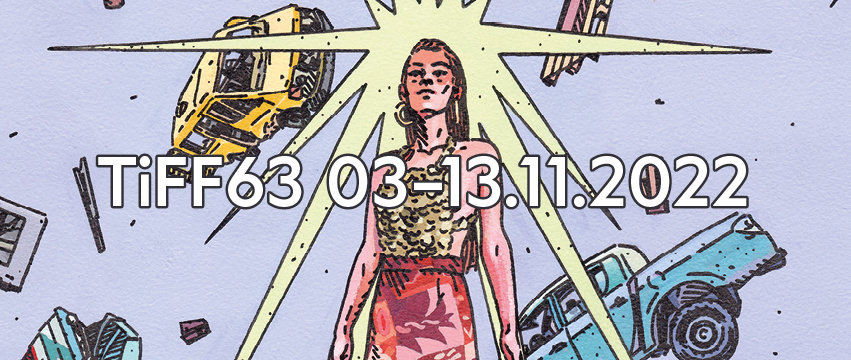
I guess you get this question a lot, but I have to ask. Is the protagonist homosexual?
I don't want to put a name, to put him in a category but of course, he is not fully heterosexual, he obviously has some tendencies, which he newly discovers. But not only for Emre, but also Murat, I cannot say that they are homosexual or bisexual but they do have some homoerotic tendencies.
If the situation with Turkish cinema was different, would you have shot this aspect in another way?
There was no real representation of homosexuality or LGBT people in Turkish cinema before. You can point to some individual examples but they are not enough to mention as a kind of representation. It is quite a new thing for Turkish cinema, it is starting now and interestingly, it starts in a period when homophobia is becoming a state policy and I believe this is a reaction to this policy. The last two years, I knew that there were more and more films about homosexuality or LGBT people and I believe this is mainly a reaction against state-sponsored homophobia.
Is this the same for you?
Definitely.
Tell me about the corruption in the film, is the portrayal realistic, particularly for rural areas?
I won't say it is mainly a rural phenomenon, it is a national phenomenon and it is a universal phenomenon. The issue is not only corruption for me, the issue is also the manipulative leaders, politicians who can be elected every time, although they obviously act not in the long-term interest of the people. All these corrupt and authoritarian mayors are popularly elected, not only in my country, but in many countries around the world. I never considered it as a kind of local problem or a problem of town people. I use the town as a kind of metaphor for the country, in order to show a universal problem nowadays. What I show in the film could have happened in India, in Russia, in Hungary in any authoritarian country…
Why do you think that is? We are so different people but we all seem to have corruption in common.
It is a very difficult question to answer. These people are good at manipulating the short-term interests of the people and secondly, they are good at manipulating the prejudices of the people. Homophobia is one of those prejudices for example, or the prejudice against any minority. These leaders can convince people that they are representing the majority and to give this feeling of majority, they generally show the minorities as a kind of “others”. They always address the very short answers for the people, which in the end, are more harmful than the more complicated answers. If you have not really institutionalized democracy, you are very vulnerable to these leaders. I mentioned countries like Russia and Hungary before, but it even happens in the US for example, with Trump, who is still an important candidate for the next elections and he is posing a serious danger to the US democracy. These things can also take place in the US. In fact, among my inspirations are American films. Polanski's “Chinatown”, Peckinpah's “Straw Dogs”. I can also imagine “Burning Days” taking place in a rural town in the US, especially in the south.
This thing about sinkholes, is it actually happening?
Yes, it is an important problem; especially in middle Anatolia, there are a lot of sinkholes and they are quite dangerous. The main reason, as also presented in the film, is the consumption of underground water. People are overconsuming the underground water, especially for farming, and that is how these sinkholes appear.
The event with the wild boar running through the town while people are hunting it, does it actually happen?
We are Muslims, so we do not eat boar, but there are a lot of wild boars in Anatolia living in the mountains and since they generally harm the farms and farmers, people shoot them. It is popular, shooting wild boars. Of course, the scene in the film is kind of exaggerated, with wild boars coming into the city and the hunt continuing in the city.
Tell me a bit about the characters. I felt like the clash of the prosecutor with the Mayor's son is like the clash of two bullies.
The prosecutor is a very powerful figure in Turkey and everywhere. I won't say Emre is a bully but is a very powerful figure. He is also very inexperienced and then he finds himself forced into the world and ends up misusing his power. It is one of the main mistakes of this character, because he thinks he is very powerful, and starts using his power in the wrong way. The Mayor's son is more unlawful, he is more of a typical bully type than Emre, because he and his father are the only authority in town and they are used to having a good but corrupt relationship with the prosecutors and the judges coming from Ankara or Istanbul. This time though, he has to confront an unusual guy.
So, if a new prosecutor would actually come to this small town, in real life, these type of people would immediately approach him in the way we see in the movie?
Yes, this is not an original story, you can see these themes in Russian literature, in Chekhov for example: an idealist state officer goes to a small town and, at the beginning, he resists corruption but at one point, he finds himself in this corrupted environment. This is the case in my film also, the relationship of the local guy and the one from the urban center can be very corrupt and collaborative.
Can you tell me a bit about the whole concept with gypsies? Are they the victims of racism in Turkey?
Yes. They are the typical minorities who have to face racist attitudes, and Turkey is not an exception. Of course, we also have some additional problems, like the issue with the Kurdish.
And the inspiration behind all those events portrayed in the movie?
They were not inspired by real events, but by real feelings, particularly the feeling of suffocation during the last few years in my country. I just wanted to say something about the recent situation in Turkey, and this is my main inspiration. Of course, I have some inspirations from literature and cinema, for example Ibsen's “Public Enemy” as one the main inspirations.
So what is the situation in Turkey right now? In Greece, there is this fear that Erdogan will wage war soon.
I don't think a war with Greece is possible, but there is this kind of destruction for Erdogan; the economy is not good, so he uses nationalism to cover the economic problems. But in the last 6-7 years, we lost most of our democratic rights and now Turkey is not a good-performing democracy in many ways. We don't have enough freedom of speech, in many works of culture we face serious pressure, so the upcoming elections in 2023 are very strategic elections. We are more optimistic today, because due to the economic crisis, he lost popularity, but there are still 6 months until then and still, everything can change.
Do you think cinema can make a real change?
Not really (laughter). I am not optimistic in that sense, especially since arthouse cinema is not reaching many people. Of course, It is really important to make oppositional, critical films but I don't think they change the way people think or act. There are more than 80 million people in Turkey and my films are not watched by more than 30,000 people, especially in the movie theaters. Including streaming platforms, they can reach 100,000 but we are still too weak to change the fate of the country. In the long run, all products of culture, or literature and cinema make sense, however.
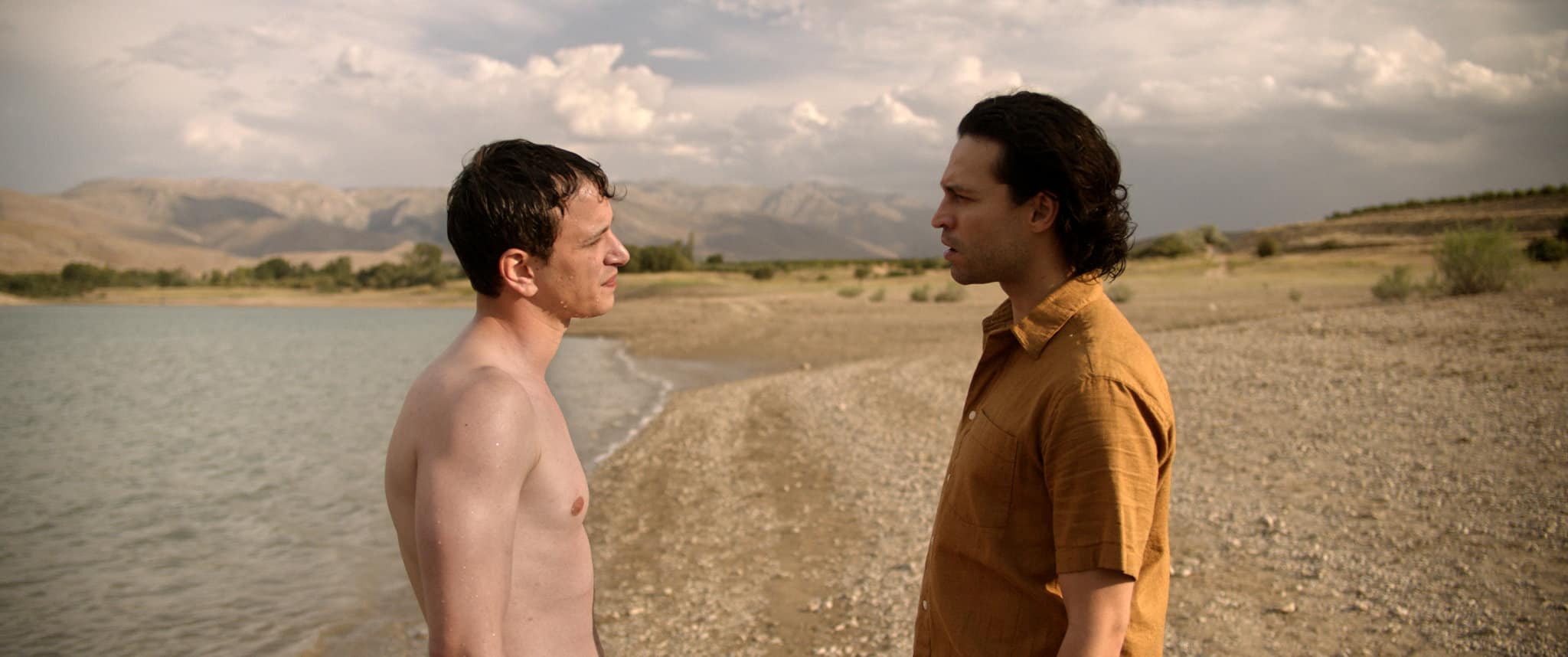
To get back to the film, can you tell me a bit about the casting?
The main two casts, and the prosecutor and the journalist, Selahattiin Pasali and Ekin Koc are young actors and they are also the most popular ones I have ever worked with, because usually I work with unknown actors. Pasali especially is a very popular figure in Netflix projects but Kos is also quite popular, they are both very good-looking and particularly admired by young girls. I did a very long audition, it took almost six months and eventually I chose those two, and I have to say I am pretty happy with the result. The Mayor's son and the dentist and the Mayor are played by actors whom I already knew from before, and it was much easier to choose them.
Can you tell me a bit about the cinematography, what did you want to do with the visual aspect of the movie?
This is one of the main directions which I wanted to go. I always thought of this film as a kind of neo-noir, neo western so I wanted to use the particular iconography. Our DOP is Greek, Christos Karamanis and I worked with him for the first time. I reached him through Yorgos Tsourgiannis, our Greek co-producer. After having an online discussion with him, I understood that we are on the same page and we had a very nice collaboration. We had a long period of pre-production, we scouted locations, we discussed angles, everything, so it was a very nice collaboration after all.
Can you also give me some details about the editing?
Things in the editing were already in the script, especially the flashbacks etc. But of course, during the editing process, many things changed, we did not remain “loyal” to the script, we made trial and error. It was a long editing period for me because there were many alternatives and I had difficulty choosing among these alternatives and it ended up being the longest period of editing for all my films. In the end, it was always a creative process. Editing sometimes can be torturous, sometimes you can lose yourself but in the end, I am happy with the result.
Tell me a bit about the ending. What happened there? It gave me the impression that this is the beginning of the sequel
There were more alternative endings in the script but in the end, I decided on this. Of course it is an open ending, and without making any spoilers, I just want to emphasize that the fight will continue and to stress that the disaster you create, will find you somehow at the end.
You directed a series for a digital platform before “Burning Days”. How was that experience?
It was tough but good, because it was an experience that taught me many things. Shooting a chasing scene for example. I used many tools and equipment which I cannot use in arthouse films because of lack of money (laughter). In art-house films, you have to wait for at least 3 years to finish your financing, so I did the series in-between those years.
But you still prefer movies right?
Of course. I always write my scripts and in the series, I did not write the script, I was just a director.
What is the situation with the movie industry in Turkey?
It was going really well, but after and during COVID, many streaming platforms appeared in the country and now their admissions are not really good and of course, the industry is affected by this. Apart from the mainstream industry, we of course have the arthouse industry, which is dependent upon public funds. This public fund issue is trickier because of the political pressure. That is why I think the next election is very important for our arthouse films.
Is there actual censorship though?
No, there is pressure, indirect censorship, but not direct.
But in general, would you say that streaming platforms are beneficial to the movie industry?
It is closing one door and opening another one. They are draining the people from the movie theaters but on the other hand, are creating new opportunities because we can sell our films to these platforms and we can earn some money. Or we can shoot some series to earn our life (laughter). For the movie theaters and cinema in general, I don't think it is very positive but on the other hand, you can reach more audience through digital platforms.
Are you working on any new projects?
I am thinking and writing on a script, it is very early now, so I don't know how I will finance it.


